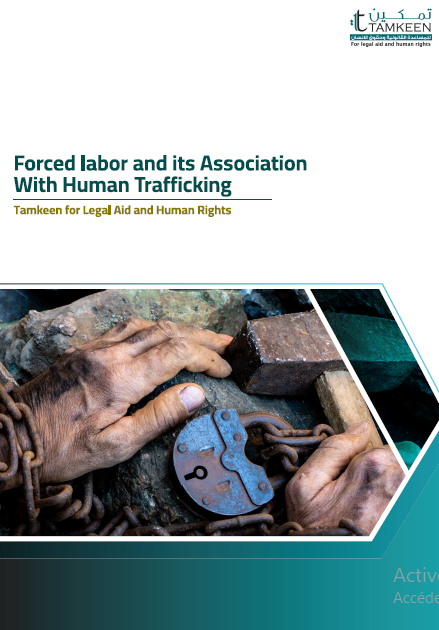
Forced labor and its association with Human Trafficking
Auteurs : Tamkeen Fields for Aid
Forced labor remains a persistent challenge in Jordan, despite international and national efforts to eradicate this violation of human rights. The study highlights Jordan’s historical commitment to combating forced labor, dating back to the abolition of the Slavery Act in 1929. However, the existing law does not explicitly address modern forms of forced labor, and subsequent legislation, such as Article (77) Paragraph (b) of the Jordanian Labor Law No. (8) for the year 1996, lacks comprehensive provisions to criminalize forced labor practices.
While the Jordanian Constitution prohibits forced labor in Article 136, with associated penalties in Article 7/2, there is a notable absence of specific provisions in the Penal Code to criminalize forced labor. Despite government efforts to regulate sectors where forced labor is prevalent, such as agriculture, domestic work, and certain industrial areas, the practices persist. Migrants, refugees, women, and children are particularly affected, highlighting vulnerabilities in the current legal framework.
The study emphasizes the need for a more explicit and comprehensive legal framework in Jordan to address modern forms of forced labor. The absence of specific criminalization provisions hampers effective enforcement, allowing forced labor practices to persist in various sectors. As the global community grapples with the challenges posed by forced labor, addressing the gaps in Jordan’s legal system becomes crucial to providing a safer and more just working environment for all.
Population Ciblée
- Autre
- Professionnels en lien avec la lutte contre la traite
- Secteur du travail
Type d’exploitation
- Travail ou services forcés
Focus géographique
- Jordanie

